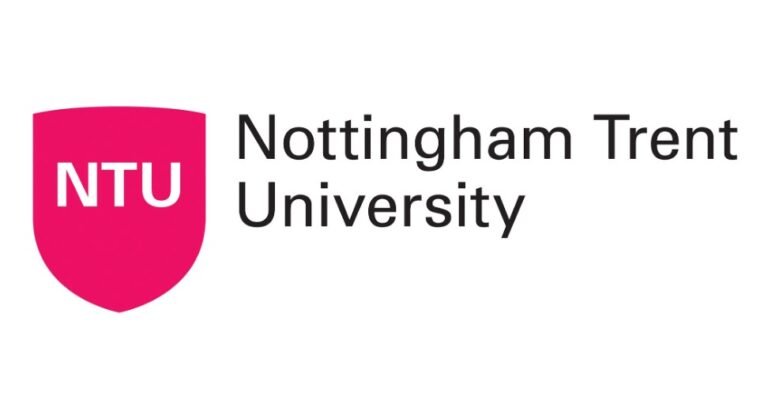Project details
This project is an exciting opportunity to undertake industrially linked research in partnership with the Manufacturing Technology Centre (MTC). The PhD is based within the Wireless Communications Research (WiCR) Group at Wolfson School of Mechanical, Electrical and Manufacturing Engineering, Loughborough University.
This is a 3-year fully funded studentship and is only open to UK home students. The successful applicant will receive a generous tax-free annual stipend of £25,000 per annum, plus payment of their full-time home tuition fees. Additionally, £2,000 per annum is provided for consumables, travel, etc. Due to funding restrictions this PhD position is only available to UK nationals, as this position is sponsored by the MTC, any successful candidate would need to pass the sponsors own security checks prior to the commencement of the PhD.
Motivation
Continuing improvements in small-scale embedded computing power mean that it is now challenging to keep improving the RF system performance by only changing the 2D shape. The next generation of RF technology will exploit degrees of freedom obtainable from novel materials, and via emerging 2D and 3D manufacturing processes. Integration of the RF systems into products is also a key challenge.
Vision
This project will focus on investigating and developing novel antenna systems to address future industrial challenges, particularly in the defence and space industries. Together, we will make technological advances in fabricating antennas and RF systems using low loss dielectrics combined with high conductivity metals; enabling 3D geometries; and improving resolutions. There is also scope to investigate laser cutting for optically transparent materials.
This exciting project will develop the successful candidate into an expert in both electromagnetic (EM) antennas and metamaterials design and measurement, and also additive manufacturing (AM). The project may evolve to be 50:50, 20:80, or 80:20 in terms of the EM-AM split
Who we are and our facilities
This project will be based at Loughborough University, but we expect the applicant to spend significant time at the MTC to gain expertise using their extensive fabrication facilities.
The WiCR Group has a wide research portfolio, conducts cutting edge research into the development of future antennas, metamaterials, and radiofrequency (RF) materials. The facilities at Loughborough include EM software, vector network analysers, an anechoic chamber, conductivity and dielectric measurement capability, and scanning electron microscopes. Loughborough University has an applied research culture. In REF 2021, 94% of the work submitted was judged to be top-rated as ‘world-leading’ or ‘internationally excellent’. We are proud of our mutual support and collaborative inclusive environment for research, with a thriving doctoral community. Doctoral Researchers can receive generous additional funds to support individual development, including opportunity to attend conferences, and training programs.
The MTC is an independent Research and Technology Organisation (RTO) aimed at de-risking and accelerating the adoption of disruptive technologies within the UK manufacturing sphere. Supported by the UK government, the MTC works closely with industrial partners and other research organisations to deliver world leading innovation across all levels of the UK’s industrial landscape, from SMEs and start-ups to OEMs and large-scale global manufacturers.
Facilities at the MTC include an extensive range of equipment for additive manufacturing (AM), inkjet printing, laser surface texturing and cutting, and electrical inspection and analysis. Working within the MTC will give you real-world experience of working within in an industrial company, as well as experiencing the workplace and culture within it. For more information, please visit the MTC website. For specific enquiries about the project, please email: Professor William Whittow or Dr. Caitlin McCall.
The School of Mechanical, Electrical and Manufacturing Engineering has seen 100% of its research impact rated as ‘world-leading’ or ‘internationally excellent’ (REF, 2021).
Supervisors
Primary supervisor: Prof. Will Whittow
Secondary supervisor: Dr Aakash Bansal
Entry requirements
Our entry requirements are listed using standard UK undergraduate degree classifications i.e. first-class honours, upper second-class honours and lower second-class honours. To learn the equivalent for your country, please choose it from the drop-down below.
Entry requirements for United Kingdom
We are looking for an enthusiastic, self-motivated candidate, with a 1st or high 2:1 degree in
a STEM (science, technology, engineering and mathematics) subject. Expertise in additive manufacturing (AM) or (EM) is preferred but is not essential.
English language requirements
Applicants must meet the minimum English language requirements. Further details are available on the International website.
Fees and funding
Tuition fees for 2025-26 entry
UK fee
Fully funded Full-time degree per annum
International fee
Not applicable Full-time degree per annum
Fees for the 2025-26 academic year apply to projects starting in October 2025.
Tuition fees cover the cost of your teaching, assessment and operating University facilities such as the library, IT equipment and other support services. University fees and charges can be paid in advance and there are several methods of payment, including online payments and payment by instalment. Fees are reviewed annually and are likely to increase to take into account inflationary pressures.
The studentship is for 3 years and provides an enhanced tax-free stipend of £25,000 per annum for the duration of the studentship plus tuition fees at the UK rate. Due to funding restrictions, this is only available to those eligible for UK fees.
How to apply
Applications should be made online. Under programme name, select ‘Mechanical and Manufacturing Engineering/Electronic, Electrical & Systems Engineering’ and quote the advert reference number FP-WW-2025/MTC002 in your application.
To avoid delays in processing your application, please ensure that you submit your CV and the minimum supporting documents.
The following selection criteria will be used by academic schools to help them make a decision on your application.





